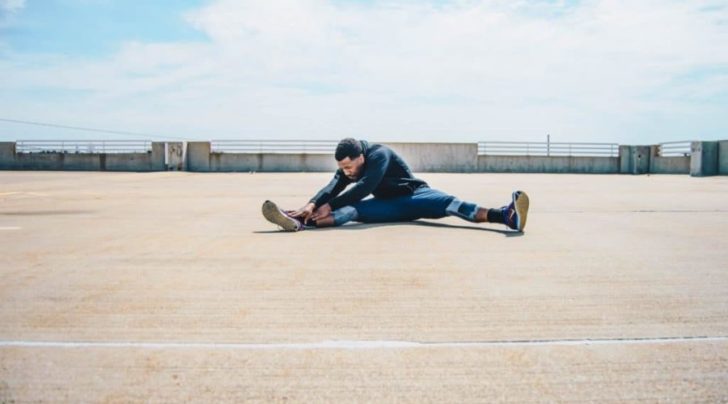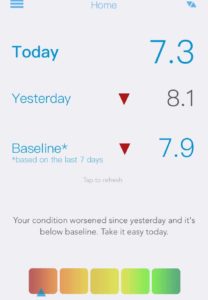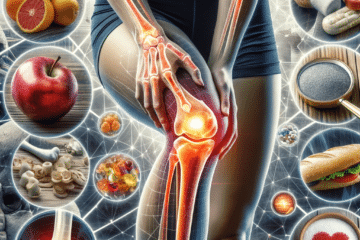
Only runners can truly understand the mindset of another runner. Runners are a unique breed. They can be easy to treat, or they can be very challenging to manage. Far too many injured runners are told to rest and stop running when something hurts. As a fellow runner, I understand how harmful that advice might be. Deconditioning is not a runner’s friend.
- Is it dangerous to continue running?
- When does your running injury require rest?
- When does your injury require only that you cut back on your mileage or pace?
What was the cause of your running injury?
Most overuse running injuries can be considered a training error. Many untrained runners run too fast, too often. They do not understand the concept of base training or heart rate training. The greatest runners of our time train most often at a slow conversational pace. Their training is highly polarized; that means that the majority of their runs are below their first threshold (.77 x your maximal heart rate). The more polarized your running, the less likely you are to suffer a soft tissue injury.
Understanding the root cause of your injury can help us cater a treatment plan to help you recover. Once you have recovered, understanding the concept of base training will decrease the risk of a future injury. Since most Orthopedic Surgeons do not run, many do not understand the complex needs of a runner. Most do not understand the complexity of the training. When you are looking for a doctor to treat your running injury, be sure to ask if your Orthopedist is or was a trained runner.
Does your running injury require rest?
Perhaps, but many overuse injuries still allow the runner to remain active. Stress fractures are injuries that we can not continue to run on. After that, many common overuse injuries will allow a runner to stay on course. Of course, your training will no longer be productive or seek to increase your fitness, but at least you’re not losing fitness. When nursing an injury you want to try to maintain your aerobic fitness, and we will try to minimize your deconditioning with our recommendations.

Can we predict when running injuries will occur?
We can not predict with any certainty when a runner will suffer from a soft tissue injury. But specific technologies can undoubtedly give us a clue that we have a good chance of developing a soft tissue injury or stress fracture. If you are training hard, you should be monitoring your load. Different platforms address this in various formats. Some may compare a 7 and 28-day moving average plot of your load. Other platforms will discuss your strain and your tolerance. In either case, your tolerance or 28-day load curve should not be higher than your strain or 7-day curve for too long.
When combined with heart rate variability tracking you can keep tabs on how your heart is keeping up with your training schedule as well. Significant increases in your strain (chronic load) or a sudden prolonged HRV drop should tell you that a period of recovery is necessary. HRV training is more complicated than that. There are times when a drop in HRV is not alarming, and a sudden rise is not always good. HRV training is more about the overall long-term trend.
Technology and Preventing Injuries in Runners
Platforms that I find useful in managing the athletes I treat include.
- HRV4
- TrainAsOne
- Polar Flow
- Garmin Connect
Many runners are digitally enabled. By tracking certain variables such as your HRV, we can determine if your overuse injury was predicted based on your training pattern.
- Do you track your runs? Find me on Strava- hjluks.
- Do you know your maximum heart rate?
- Do you know your VO2 Max?
- What is your Lactic Acid Threshold?
- What is your standing HR?
- Do you base train?
- Do you monitor your HRV?
- What’s your favorite workout? Hill repeat, thresholds, fartleks, Yasso 800s?
I want to know! :-)
That will assist me in treating you.
Most beginner and moderate level runners overtrain. These runners will run too fast, too often and their workouts are often not polarized enough. As a local Orthopedic Surgeon who runs with many of you, I get it. I understand that your Garmin may not be your best friend when you’re on the trails and trying to push harder. It is often best to run just by how you feel. A seasoned runner can tell you their heart rate based on how they are breathing. Sometimes it’s best to flip your watch around so you can not see it. Verbal cues from the watch are best left silent for the majority of your runs. But if your run isn’t on Strava, it didn’t happen. Right? I know your type too :-). So keep your phone or watch on your body, just keep it on silent.
This is a situation where the technology available to a runner can be a blessing or a curse. Either way, bring your data in with you. I want to see it.
Injured runners are best managed by physicians who clearly understand a runners physiology and their response to training stress. Some injuries might lag, and stay around for quite a while. But at least you will be able to continue to participate in the sport you love.













